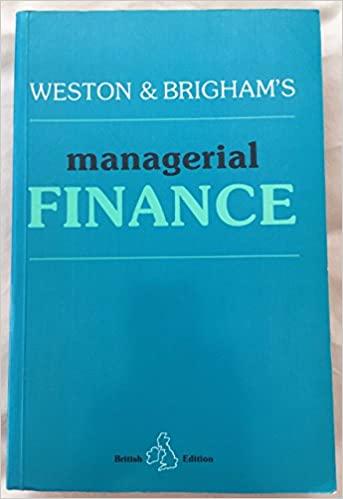Question
A firm with a 14% WACC is evaluating two projects for this year's capital budget. After-tax cash flows, including depreciation, are as follows: 0 1
A firm with a 14% WACC is evaluating two projects for this year's capital budget. After-tax cash flows, including depreciation, are as follows:
| 0 | 1 | 2 | 3 | 4 | 5 |
| Project M | -$30,000 | $10,000 | $10,000 | $10,000 | $10,000 | $10,000 |
| Project N | -$90,000 | $28,000 | $28,000 | $28,000 | $28,000 | $28,000 |
-
Calculate NPV for each project. Do not round intermediate calculations. Round your answers to the nearest cent.
Project M: $
Project N: $
Calculate IRR for each project. Do not round intermediate calculations. Round your answers to two decimal places.
Project M: %
Project N: %
Calculate MIRR for each project. Do not round intermediate calculations. Round your answers to two decimal places.
Project M: %
Project N: %
Calculate payback for each project. Do not round intermediate calculations. Round your answers to two decimal places.
Project M: years
Project N: years
Calculate discounted payback for each project. Do not round intermediate calculations. Round your answers to two decimal places.
Project M: years
Project N: years
-
Assuming the projects are independent, which one(s) would you recommend?
-
If the projects are mutually exclusive, which would you recommend?
-
Notice that the projects have the same cash flow timing pattern. Why is there a conflict between NPV and IRR?
Step by Step Solution
There are 3 Steps involved in it
Step: 1

Get Instant Access to Expert-Tailored Solutions
See step-by-step solutions with expert insights and AI powered tools for academic success
Step: 2

Step: 3

Ace Your Homework with AI
Get the answers you need in no time with our AI-driven, step-by-step assistance
Get Started


